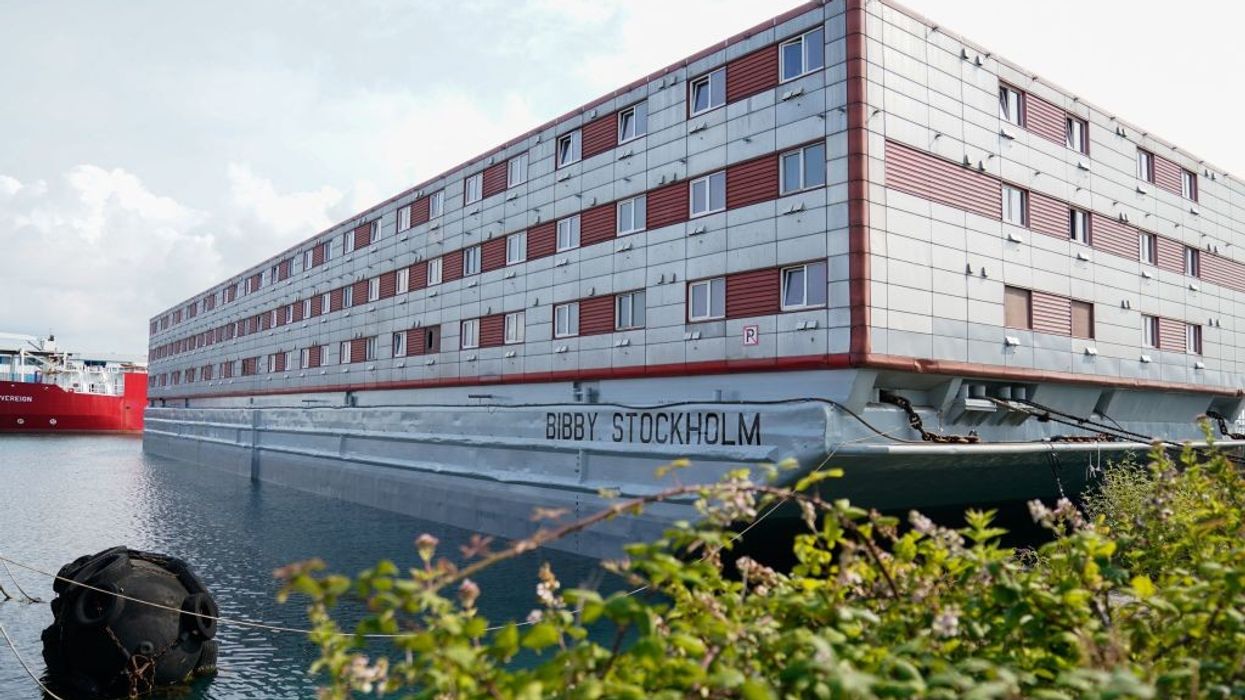THE British government insisted a barge set to house around 500 asylum-seekers was not "a floating prison", amid concern at the plan from rights campaigners and some Tory MPs.
The "Bibby Stockholm", which is now docked in Portland on the Dorset coast in southern England, will controversially begin hosting the migrants next week.
"It isn't a floating prison," Leanne Palk, the home ministry's deputy director for asylum accommodation, told British media during a tour of the vessel.
"People are free to come and go as they want, but we do have this secure fence line in place just so that people don't wander around the port.
"It is a working port and we need to keep the safety of the asylum-seekers on board the vessel at the heart of everything we do."
The barge was previously used by Germany and the Netherlands to house homeless people and asylum-seekers, but its use in the UK has drawn criticism from advocates who note it has been described as an "oppressive environment".
Local Tory lawmakers have also hit out at locating the barge in Portland, a small island with a population of about 13,600 people, arguing the area is ill-suited to hosting the young, male migrants.
The government is trying to lower the costs of housing claimants, following a surge in cross-Channel arrivals aboard small boats in recent years.
More than 45,000 arrived on the shores of southeast England last year, stretching an asylum system which now spends £6 million ($7.8m) a day in taxpayers funds on accommodation.
The government is also seeking to stem the flow through a new "illegal migration" law, enacted Thursday, which bars asylum claims by all arrivals via the Channel and other "illegal" routes.
It also mandates their transfer to third countries, such as Rwanda, but that element of the law is currently mired in a court challenge.
The UN's refugee agency has condemned the new rules as a "breach of international law" and warned it would expose refugees to "grave risks".
(AFP)





